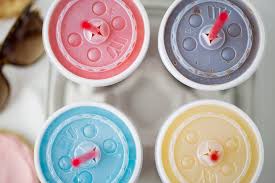Are we selling Marriage short?
(week 2)
Has anyone noticed that modern society seems to be more
committed to our favorite drink spot, than we are to marriage? There is fierce
loyalty to the preferred soda or coffee shop. We overlook small mistakes and
flaws, because we are dedicated. And it's only a drink.
But what about marriage? Is it passé? It's doesn't come in
fancy packaging or gives us the immediate rush of gratification like a fizzy
drink. I've been wondering if we are going big with our cups and living small
with our lives.
Marriage is an age-old custom, but when did it become so
old-fashioned? It's no surprise that in the United States (and around the
world) marriage seems to be losing favor. We can see it in our personal
circles. According to "The State of Our Unions: Marriage in America
2012," the percent of individuals entering marriages is down 50 percent. Divorce
rates are around 50% (higher for subsequent marriages) and cohabitation has
"drastically increased." So the trends we see in our family and
friend circles are that less people are actually marrying and half of the
people that do get married are divorcing. The natural conclusion is that the
institution of marriage is losing ground. Popular culture may tout this as
"enlightened" or the natural progression of our society. But there is
little discussion over how these trends are affecting us - not just personally
but as a whole community.
It's difficult to want to acknowledge that marriage isn't
just a personal choice, but a choice that affects others in your future family
and your community. It's not just about ordering your drink to enjoy. "Marriage
is not merely a private arrangement; it is also a complex social
institution." (The State of Our Unions: Marriage in America 2012) So let's
break down the complexity for a moment and ask ourselves what that even means. According
to studies, the demographic most affected by this retreat from marriage are
those that have a high school diploma but not a college degree. The middle
class group of people, in decades past, created partnerships through marriage
that not only were personally fulfilling, but economically stabilizing. It
created a support for each spouse. But as less and less are marrying, opting
for single-hood or cohabitation it is undercutting that stability and creating a
financially fragile demographic. So the loss of marriages is mirroring the loss
of middle class. It is leaving the children born to single-mothers and
cohabiting couples at economic disadvantage.
There is also research indicating that there is a myriad of
negative effects on children who do not have two continuously married parents.
These effects can include: poor school performance, behavioral problems, poor
self image, and poor mental health. This is just a snap shot of the results of
current marriage trends. They don't seem very encouraging.
We would all like to have a better outlook for our community
and nation as a whole. Marriage is a large contributing factor, but it's not
being discussed.
Most teenagers see themselves getting married but few see
themselves staying married, or find cohabiting an accepted alternative. Bridging
the gap between what we want for our own lives and what we want right now is
difficult. What I've found it helpful, in my personal life, is to brave
marriage discussions. Finding people that are open and asking questions has
helped me identify more of what I want (and the behavior that brings it about).
Having vulnerable conversations (even with yourself) about what your
impressions of marriage were as child and what you want as an adult has opened
my eyes.
We love to talk about our favorite drinks. The discussion of
different flavors and places gives us a chance to explore what we like. So
let's change up the conversation and talk about something a little weightier. Let's
start talking about marriage more. Let's talk about ways to shore up our own
marriages, support others and speak well of the struggle to create happiness
and stability. Let's create spaces to discuss gently the hard parts and
encourage healing. Marriage is relevant to the happiness and stability of the
individual, the family, and to communities large and small.
If we can find loyalty to our favorite beverage and defend
it, can we find loyalty towards marriage?


Comments
Post a Comment